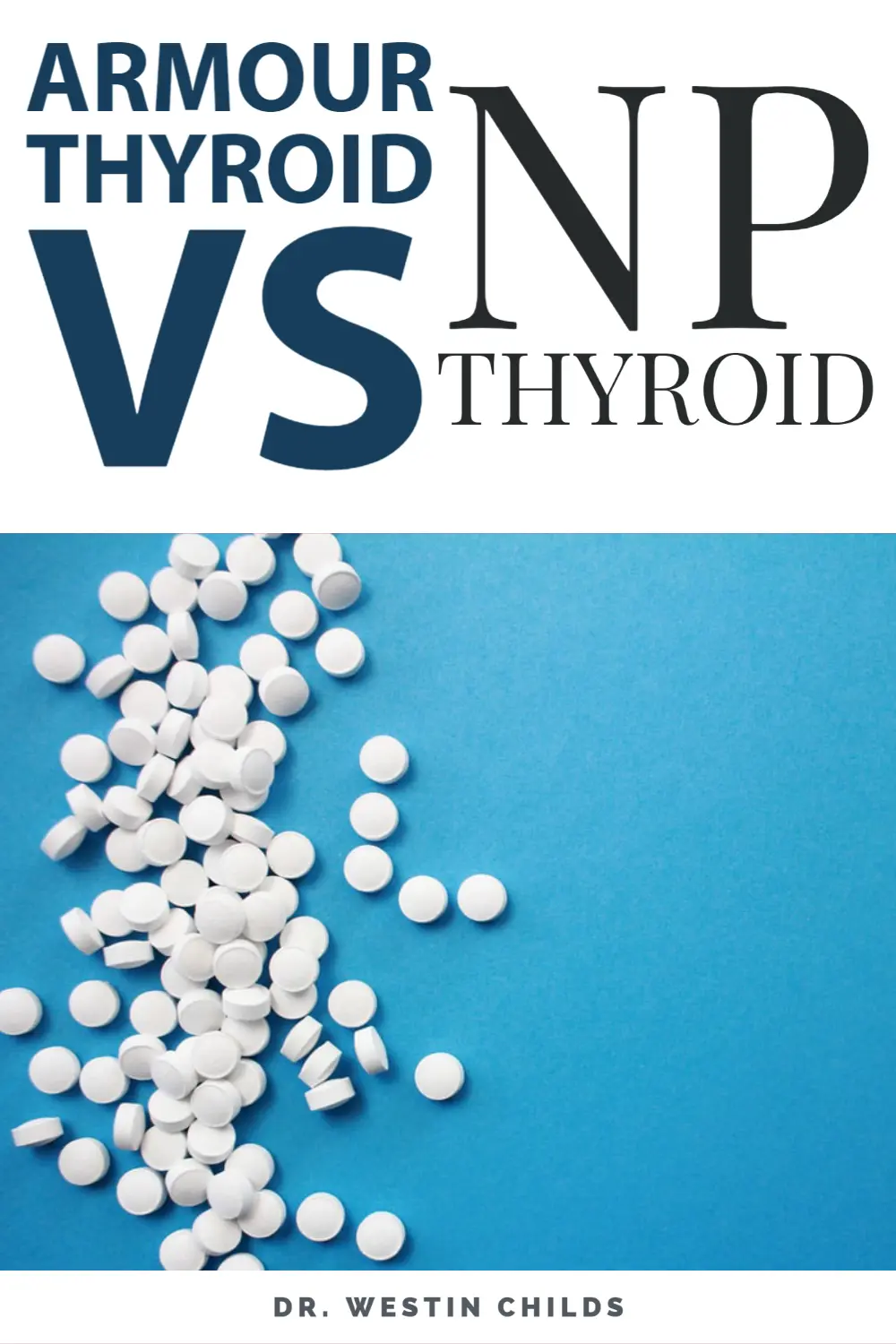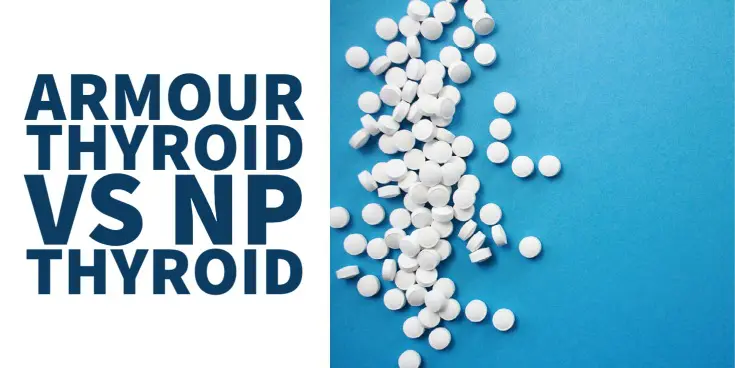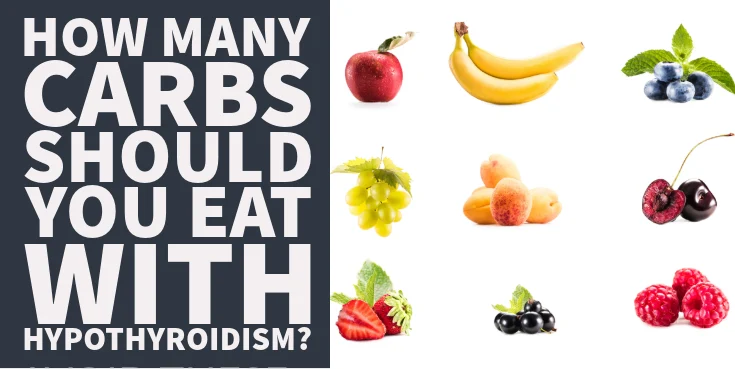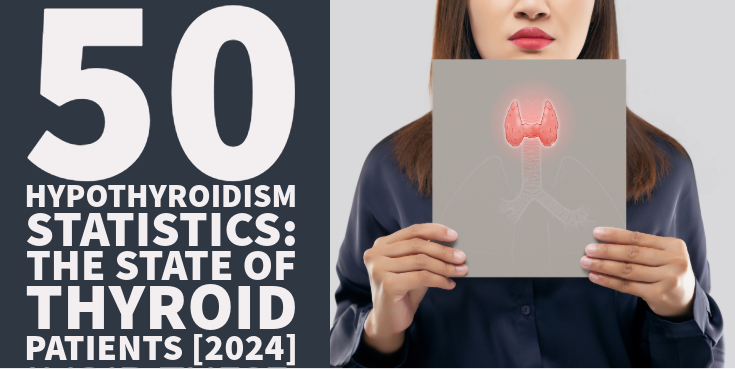NP Thyroid is a thyroid medication that is similar to but slightly different than Armour thyroid.
Will switching from Armour to NP make a difference in your body? Will it help with weight loss? Will it prevent hair loss?
The answer is maybe and it has to do with the difference between these medications.
The difference is not big, but sometimes a small difference can manifest as a large change in your symptoms.
This article will help you decide whether or not you should switch medications.
What is NP Thyroid?
What exactly is NP Thyroid?
NP Thyroid is a relatively new thyroid medication that is available. It has become more popular as it has become harder and harder to get other forms of Natural Desiccated Thyroid medications such as Nature-throid and WP Thyroid.
It’s important for you to understand that NP thyroid is another formulation of Natural Desiccated thyroid hormone and medication.
What does that mean?

It means that it contains the same active ingredients as Armour thyroid but it differs in the type and amount of inactive ingredients.
Both medications are considered natural and both are sourced from animal thyroid glands (porcine-derived).
Both Armour thyroid and NP Thyroid are dosed in the same way with equivalent doses.
That means 60mg of Armour thyroid is equal to 60mg of NP Thyroid.
Each grain of NP Thyroid contains 38mcg of T4 thyroid hormone and 9 mcg of T3 thyroid hormone which is similar to other brands and formulations of NDT (*this is also true of Armour thyroid).
Does that mean that you will react the exact same way if you switch medications?
Not exactly and that’s part of the point of this article.
In fact, sometimes simply switching from one type of thyroid medication to another (even if it’s in the same class of medications) can dramatically improve your symptoms.
Much of this has to do with how your body tolerates the inactive ingredients and how well they are absorbed into your bloodstream from the intestines (1).
NP thyroid has fewer inactive ingredients when compared to Armour thyroid which may influence this absorption.
DOWNLOAD FREE RESOURCES
Foods to Avoid if you Have Thyroid Problems:
I’ve found that these 10 foods cause the most problems for thyroid patients. Learn which foods you should avoid if you have thyroid disease of any type.
The Complete List of Thyroid Lab tests:
The list includes optimal ranges, normal ranges, and the complete list of tests you need to diagnose and manage thyroid disease correctly!
What’s the Difference Between NP Thyroid and Armour Thyroid?
NP thyroid is worth considering especially if you are currently using Armour thyroid due to several important reasons:
#1. It is slightly cheaper when compared to Armour Thyroid.
And #2. It contains fewer inactive ingredients than Armour Thyroid.
The number and type of inactive ingredients found inside medications are actually quite important because some medications contain starches or plant products that can cause digestive issues.
Other medications (such as Synthroid) contain lactose products (2) which can cause reactions if you suffer from lactose intolerance!
So how does Armour Thyroid differ from NP thyroid?
The ingredient list of Armour Thyroid includes:
- Triiodothyronine (active ingredient)
- Thyroxine (active ingredient)
- Calcium stearate
- Dextrose
- Microcrystalline cellulose <— May cause reactions in some people
- Sodium starch glycolate
- Opadry white
- Minor amounts of calcitonin, T1, T2, and proteins
Armour thyroid contains 2 active ingredients (thyroid hormones) and 5 inactive ingredients.
The two inactive ingredients that may cause issues for most people include starch and microcrystalline cellulose.

These can be difficult to digest in some individuals, especially if they suffer from low stomach acid or other digestive issues.
I’ve had many patients who simply switch from one brand of NDT to another and find that they get almost immediate relief from their symptoms.
This doesn’t happen in everyone but it’s always worth considering.
NP Thyroid Ingredient List
The ingredient list of NP thyroid includes:
- Triiodothyronine (active ingredient)
- Thyroxine (active ingredient)
- Calcium stearate
- Dextrose monohydrate
- Maltodextrin
- Mineral oil
- Minor amounts of calcitonin, T1, T2, and proteins
NP thyroid has a total of 2 active ingredients and 4 inactive ingredients. Even though NP and Armour differ only by 1 inactive ingredient that may still cause quite a bit of difference in certain people.
If you react to the inactive ingredients then you may suffer from unexplained side effects such as dizziness, headaches, rashes, stomach pain, gas or bloating after taking your thyroid medication.
These symptoms can be confusing, especially if you aren’t sure if you are being dosed correctly, but they may be a sign that you are reacting to the inactive ingredients in your medication.
Cost of NP Thyroid
The cash price of NP thyroid is right around $14 – $15 per month.
Most insurances will cover it but in case yours doesn’t you can use a tool like goodrx.com to help reduce the price by using cash coupons.
I generally compare the cash price of medications here so that you get an idea of what they cost on a monthly basis.
The prices of medication will vary slightly based on your location but it shouldn’t be much more than $15 per month for the 30mg tablets (1/2 grain).

How does that compare to Armour Thyroid?
The cash price of Armour thyroid is almost double with a monthly cost of $26 – $27 for a 30-day supply of 30mg tablets.

If you find that your prescription cost is climbing steadily over a period of months to years then it may be a good idea to consider switching from Armour to NP thyroid.
NP Thyroid and Weight Loss
Does NP thyroid cause weight loss and will it help you?
The answer is that it really depends.
If you are already on Armour thyroid and interested in switching to NP thyroid then it probably will not help with weight loss significantly.
If, on the other hand, you are taking Synthroid or levothyroxine and you want to switch over then it might help.
Why is that?
It has to do with the thyroid hormone content in each tablet of medication.
NP thyroid contains a combination of both T4 and T3 in the ratios described above.
The real benefit of using these medications stems from the fact that T3 is included in them.
Studies have shown that weight loss, especially in thyroid patients, is heavily influenced by both the free T3 and total T3 levels.

The easiest way to increase both your free T3 and total T3 is with the use of thyroid medications that contain pure T3.
This includes NP thyroid but also other medications such as Cytomel and liothyronine.
Another strategy to increase your free T3 is by using natural therapies which can help enhance thyroid conversion.
Therapies such as certain supplements, managing inflammation, and taking botanicals can help. I’ve written about how to do this naturally in this 8-step guide which you can learn more about here.
NP Thyroid Side Effects
All thyroid medications can potentially cause negative side effects.
Most of the time, though, these side effects are self-limiting and dose-dependent.
What does that mean?
It means that if you reduce your dose these side effects tend to go away. And some side effects tend to go away on their own even without manipulating your dose.
The most concerning side effects, from a patient perspective, include increased hair loss and heart palpitations.
Both of these tend to be dose-dependent, but hair loss may be directly related to the medication itself.
If you have hair loss while using NP thyroid then you may need to switch to a different medication entirely as this side effect may not go away.
You can learn more about managing hair loss with thyroid disease here.
Potential side effects of using NP thyroid include:
- Hair loss
- Heart palpitations
- Weight loss
- Tremors
- Headaches
- Diarrhea
- Migraines
- Stomach pain
If you experience any of these side effects you should reach out to your prescribing Doctor and get your blood drawn.
More serious but rare side effects on NP thyroid include (usually related to a very high dose):
- Chest pain
- Shortness of breath
- Bone loss
- Heart enlargement
These side effects are quite rare and tend to occur only in susceptible patients. If you experience any of these then you should seek medical attention immediately.
Is NP Thyroid Considered Natural or Synthetic?
NP thyroid is considered to be a natural thyroid medication because it is derived from animal thyroid glands.
The hormones contained in this medication were created by the thyroid gland of animals and not in a lab.
Natural thyroid medications (Armour thyroid, Nature-throid, WP thyroid, and NP thyroid) should be differentiated from synthetic medications (Synthroid, levothyroxine, Cytomel, liothyronine, and Tirosint).
Just because NP thyroid is natural does not mean that it is superior to other forms of thyroid medications, however.
Some people do quite well on clean T4-only thyroid medications such as Tirosint, especially when combined with T3-only thyroid medications.
The benefit of using these medications separately is that you can easily titrate your T4 and T3 doses.
If you’ve tried all of the different types of natural thyroid medications and you still aren’t feeling well then you may want to give a cleaner T4 + T3 thyroid medication combination a try.
Final Thoughts and Recommendations
If you are wondering whether or not you should switch from your medication to NP thyroid then I would consider the following questions:
Are you currently happy with your medication? (If the answer is no then you may want to consider switching)
Do you feel that your medication is helping reduce your symptoms? (if the answer is no then you may want to consider switching)
Are you experiencing symptoms that may be related to inactive fillers or binders? (if the answer is yes then you may want to consider switching)
Are you happy with the current price of your medication? (if the answer is no then you may want to consider switching)
Depending on how you answered these questions you may want to consider altering your medication.
As long as you switch our your medication for an equivalent dose (which is easy if you are on Armour thyroid) then there shouldn’t be a problem with the transition.
If you don’t experience any positive benefit after a 2-month trial on the new medication then you can simply switch back.
But, on the other hand, if you experience a positive change then it may be worth sticking with it.
Not everyone will experience a positive change when or if they switch, but it’s always worth a shot, especially when your health is on the line.
Now I want to hear from you:
Are you currently taking NP thyroid?
Are you considering switching from whatever you are taking to NP thyroid?
What is holding you back?
Leave your questions or comments below!








